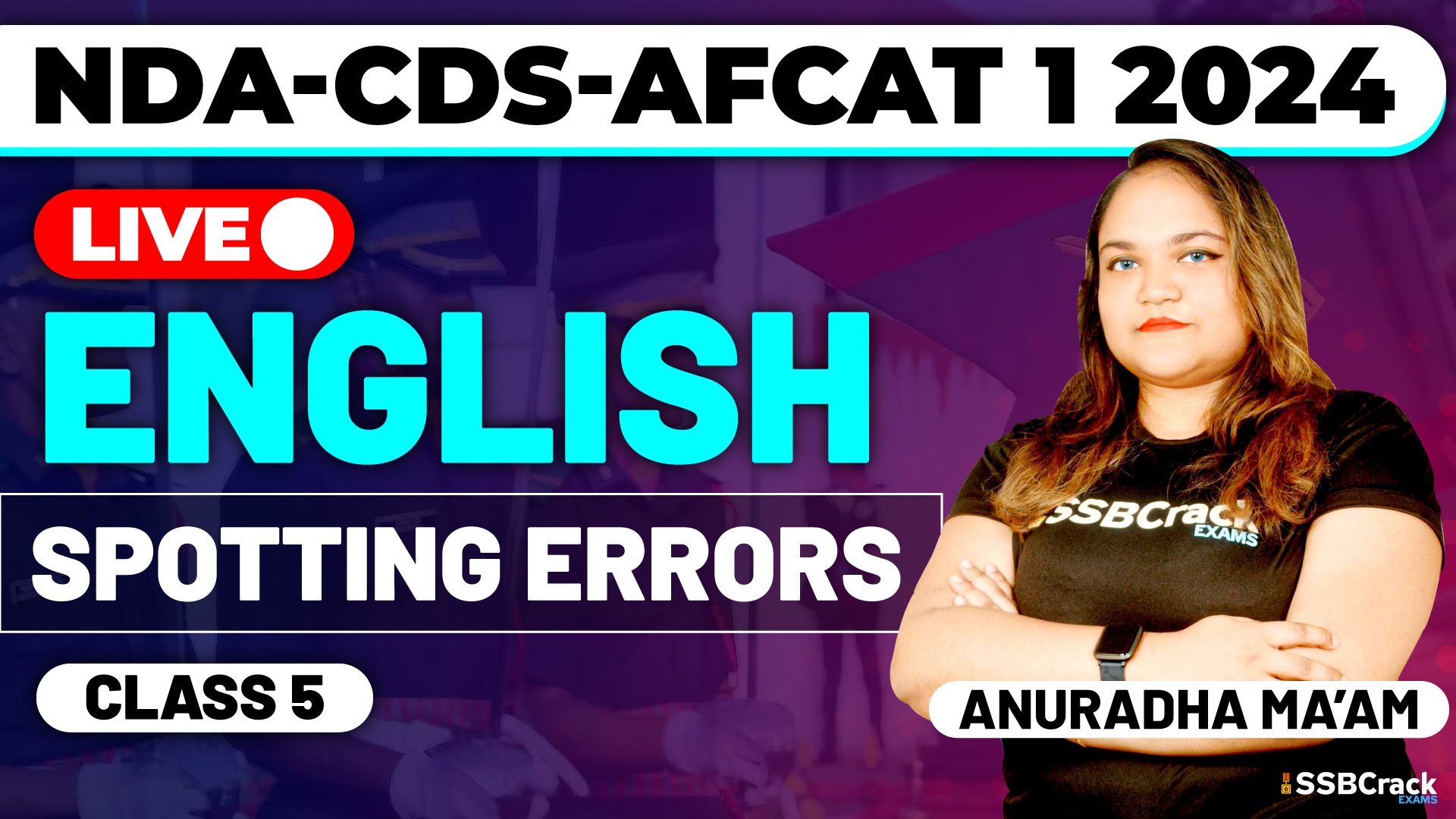In the highly competitive world of exams such as the National Defence Academy (NDA), Air Force Common Admission Test (AFCAT), and Combined Defence Services (CDS), the English language section is a litmus test of one’s language proficiency. Among the various topics assessed, “Spotting Errors” emerges as the most critical and challenging segment. To excel in this section, a deep and thorough understanding of English grammar rules is paramount. At the heart of mastering Spotting Errors lies the mastery of rules governing prepositions, especially appropriate prepositions.
Understanding the Significance of Preposition Rules
Prepositions are tiny but powerful words that establish relationships between other words in a sentence. A strong grasp of preposition rules is essential for several reasons:
- Spotting Errors Proficiency: Questions in the Spotting Errors section often hinge on the correct usage of prepositions. Adeptness in preposition rules enables you to swiftly and accurately identify grammatical discrepancies.
- Clarity and Precision: Accurate use of prepositions ensures that the relationships between words in a sentence are clear and precise. Misplaced prepositions can lead to confusion or altered meanings.
- Effective Communication: In both written and spoken communication during exams and interviews, proper prepositions enhance the fluency and impact of your language.
- Foundational Grammar Skills: Beyond the exams, a strong foundation in preposition rules contributes to overall English language proficiency.
Key Preposition Rules for Success
Let’s explore some of the most vital and exam-specific preposition rules that can pave your way to conquering the Spotting Errors section in NDA, AFCAT, and CDS exams:
- Appropriate Prepositions: The choice of preposition depends on the context and the relationship between words. Common examples include “in,” “on,” “at,” “by,” “with,” “for,” “of,” “to,” and “from.”
- Prepositions of Time: Use “in” for months and years (e.g., “in June” or “in 2024”), “on” for days and dates (e.g., “on Monday” or “on January 1st”), and “at” for specific times (e.g., “at 3 o’clock”).
- Prepositions of Place: Use “in” for enclosed spaces (e.g., “in the room”), “on” for surfaces (e.g., “on the table”), and “at” for specific locations (e.g., “at the park”).
- Prepositions of Movement: Use “to” to indicate a destination (e.g., “She went to the store”) and “from” to indicate the starting point (e.g., “He came from the airport”).
- Prepositions After Verbs: Certain verbs are followed by specific prepositions (e.g., “depend on,” “apologize for,” “believe in”). Pay attention to these combinations.
- Prepositions of Cause and Effect: Use “because of” to indicate the cause (e.g., “She was late because of traffic”) and “result in” to indicate the effect (e.g., “His actions resulted in chaos”).
- Prepositions of Comparison: Use “than” to compare two things (e.g., “She is taller than him”) and “among” for more than two things (e.g., “He is among the top three students”).
- Prepositions of Agency: When indicating the doer of an action, use “by” (e.g., “The book was written by the author”).
Conclusion
Mastery of preposition rules, especially appropriate prepositions, is not just a prerequisite for excelling in the Spotting Errors section of NDA, AFCAT, and CDS exams; it is a fundamental skill for effective communication in English. These rules provide a strong foundation for understanding sentence structure, grammar, and clarity in expression. By dedicating time to learn and practice preposition rules, you equip yourself with a potent tool to navigate the challenges of competitive exams and enhance your overall English language proficiency. Embrace these rules, practice rigorously, and pave your path to success in the NDA 1 2024, AFCAT 1 2024, and CDS 1 2024 exams.







